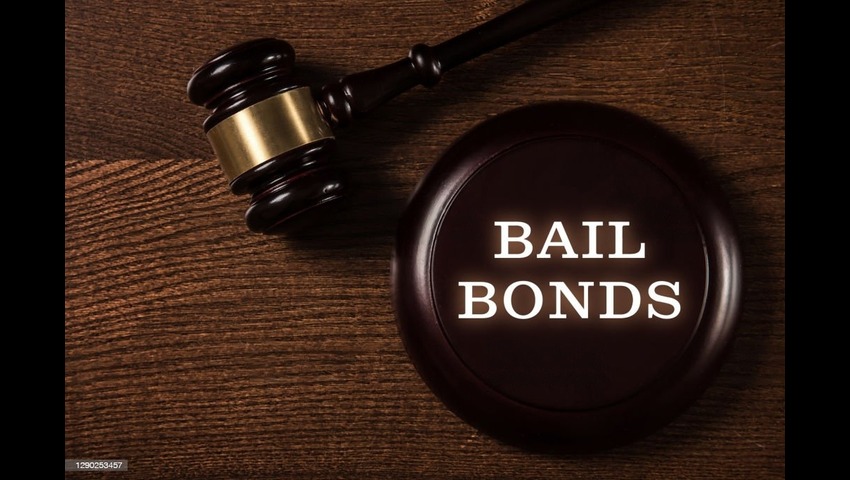When someone in your family gets arrested, your first instinct is to help. You want to make things right and bring them home. For many people in this situation, that means posting bail. But the process isn’t as simple as walking into a jail and handing over cash. There’s a lot more behind the scenes, and understanding what’s really involved can save you from making stressful, costly mistakes.
Let’s take a closer look at what posting bail actually means when it’s your family on the line—and why working with a professional, like a bail bondsman in Raleigh NC, can be the safest way to go.
What Happens After a Family Member Is Arrested
Once a person is arrested, they’re taken into custody and booked. That booking process involves fingerprinting, a mugshot, and being placed in a holding cell or jail. The court then sets a bail amount, which is the money someone must pay to be released while they wait for their court date.
This amount can vary widely. A minor charge might carry a bail of a few hundred dollars. More serious charges can be tens of thousands. The bail amount is meant to ensure the person shows up for their court appearances.
Families often assume they can just pay the full amount and be done with it. But that’s where things can get tricky.
Why Posting Bail Isn’t Always Straightforward
Paying bail out of pocket isn’t just about having enough cash. If you decide to cover bail yourself, you need to understand:
- You’re responsible if your loved one doesn’t show up to court
- You may have to wait weeks or even months to get the money back
- The full amount must be paid upfront if you don’t use a bail bond company
- Collateral may be required, especially for large bail amounts
Many families quickly realize that coming up with $10,000 or more is not realistic. That’s where a bail bondsman becomes helpful.
How a Bail Bond Works
A bail bond is like a promise, backed by a licensed bail agent, that your loved one will show up to court. You pay a fee—typically around 10% of the full bail amount—and the agent takes care of the rest.
For example, if bail is set at $15,000, you’d pay $1,500 to the bondsman. The company then posts bail on your family member’s behalf, and they’re released. That fee is non-refundable, but it’s far less than paying the full $15,000.
The bail bond agent becomes responsible for making sure the defendant appears in court. If they don’t, the agent can pursue legal steps to locate and return them to custody.
Your Role as the Indemnitor (Co-Signer)
If you’re the one signing the bail bond papers for your family member, you become what’s called the indemnitor. This means you’re agreeing to take responsibility for their actions.
Here’s what that includes:
- Making sure they attend all court dates
- Keeping them informed about legal responsibilities
- Being available to the bail bond company if issues arise
If your family member runs or fails to appear, you could lose any collateral you offered, and you might owe the bail bond company more money.
The Emotional Side of Bailing Out a Loved One
Bailing out a family member is rarely just a financial decision. Emotions run high—fear, confusion, and guilt often come into play.
You might feel pressured to act fast. But it’s important to pause and get all the facts before signing anything. Ask questions. Get advice. Speak to a local bondsman who understands your area’s court system.
The truth is, not every situation calls for immediate bail. If the person will be arraigned in a day or two and might get released on their own recognizance, it might make sense to wait. Talking to a professional can help you weigh your options calmly.
The Hidden Risks of Trying to Bail Someone Out Alone
Many people attempt to go through the process alone to avoid extra costs. But this often leads to more problems:
- Paperwork errors that delay release
- Missing court obligations due to lack of legal knowledge
- Financial strain if the full bail amount is paid and then tied up for months
A professional bail bond agent knows how to avoid these setbacks. They understand how each jail works, how to push paperwork quickly, and what’s needed to protect both the defendant and the co-signer.
This is especially important in larger counties or cities where the process can vary from one detention center to another.
Tips Before You Post Bail for a Family Member
If you’re thinking about bailing someone out, here are a few things to keep in mind:
- Ask about the charges and bail amount first. Don’t rush in without knowing what you’re dealing with.
- Review your finances. Only sign if you’re confident you can cover the costs or collateral.
- Talk to a licensed bondsman. Make sure they are local, experienced, and responsive.
- Understand what you’re agreeing to. As the co-signer, you have legal responsibilities.
Having this knowledge puts you in a better position to help without putting yourself at risk.
When Working with a Bail Bondsman Is the Right Choice
There are times when the smartest move is to call a bail bond company. This is especially true if:
- The bail amount is higher than you can afford
- The arrest happens outside your local area
- The defendant has a past history of missed court dates
- You need guidance navigating the court system
Working with a local bail bondsman means they’re familiar with the process in your county. They can often get things moving faster and handle the details, while you focus on supporting your loved one emotionally.
In Brunswick County, for instance, you’ll want someone who knows the area courts and law enforcement systems. A bail bondsman in Brunswick County can make a big difference in how smoothly things go.
Final Thoughts: Know What You’re Getting Into
Helping family is a powerful instinct. But when it comes to posting bail, it’s not just about love—it’s about responsibility. Understanding the full picture before you commit can protect you from unnecessary hardship later.
Talk to someone who’s done this before. Use local experts. And don’t be afraid to say no if it feels like more than you can take on. Support doesn’t always mean saying yes—it means doing what’s best for everyone, including yourself.
When done the right way, posting bail can be part of the path toward stability and a fresh start. But that path begins with knowing the truth, asking the right questions, and getting help from those who know how the system really works.


